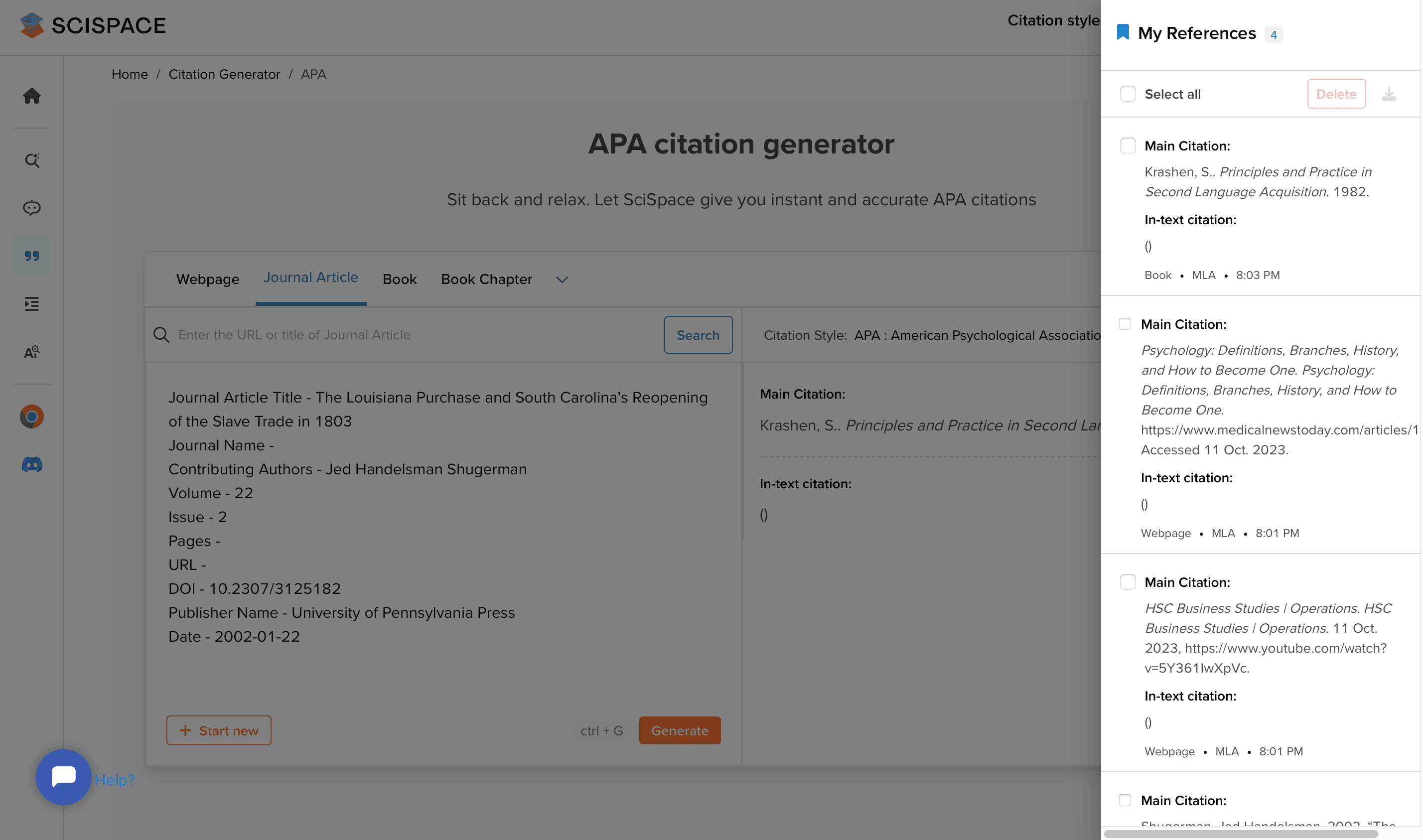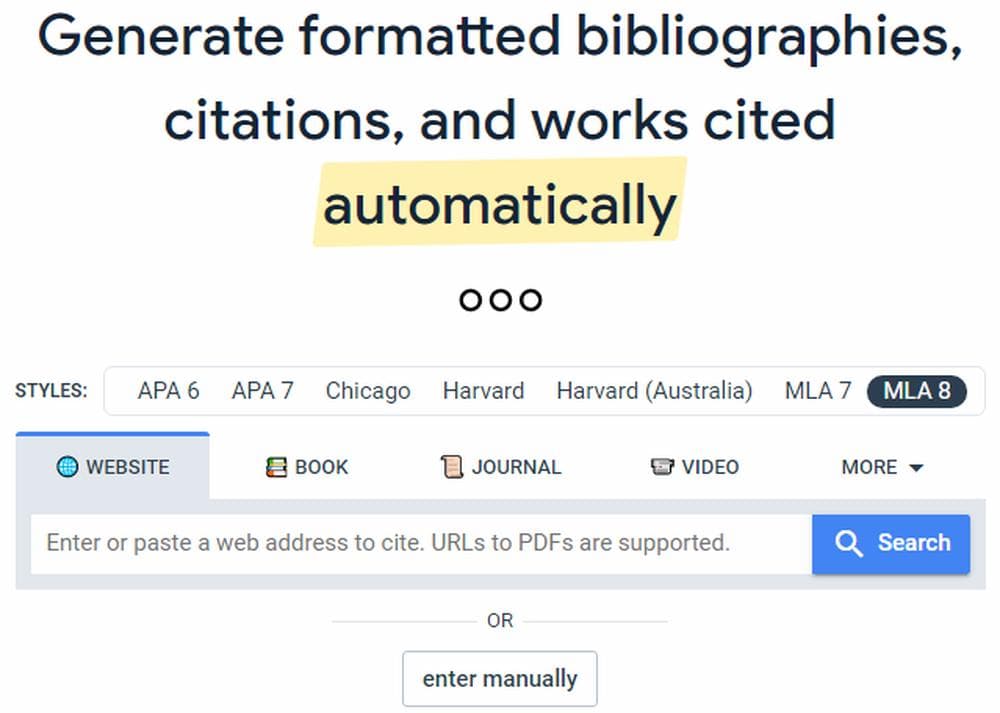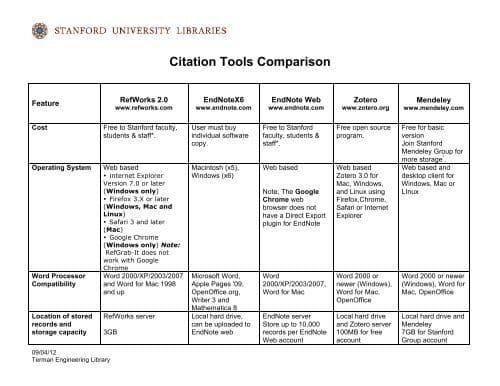Introduction
As scholarly communication becomes more complex and fast-paced, we are increasingly challenged to keep up and not fall behind. Even professional research is more fragmented now, with more places to publish and more formats to use. This means there's more opportunity—and temptation—to be dishonest. Obviously, this kind of dishonesty isn't just hurting the people who are falsely praised; it's also harming the field and society. Bad citations and misused annotation practices have hurt many disciplines. In education, where we're supposed to "teach and model" integrity, we've been the worst offenders. But, as Brian Martin reminds us, "The evidence for and against any claim need to be carefully considered and cited."
Nowadays, really good and high-tech online citation tools are available to everyone. Because they're easy to use, even the most hard-working students can figure out how to use them. These tools are so good that they immediately bring up a nagging question: What are we supposed to do now? And when people wonder, "What are we supposed to do?," they often mean to ask, "What does the academic community expect from us when it comes to keeping our work free from the suspicion of plagiarism?" These online citation tools, with all their new features, make us ask: Have they been helping us for so long that we've become a little too dependent on them?

Leading Free APA Citation Tools
In the changing world of academic writing, APA citation generators have become essential tools for both researchers and students. As we move into 2024, several free online platforms stand out. They are trustworthy and easy to use, so people go to them to create precise APA citations.
Citation Machine
Today, one of the biggest free APA citation tools out there is Citation Machine. Its easy-to-use interface lets you make quick citations, but it also has some helpful advanced features. You can choose between making your citation and having the site do it for you, and you get real-time error checking and formatting suggestions. This way, you can cite sources like books and journals, but also the new online digital media you use more often now.
MyBib
MyBib is a really popular citation tool, and for good reason. It's super easy to use and gets the job done well. Plus, it lets you create citations for free. You can use it online without downloading any software, or you can download the app. It's completely free, and that's pretty rare for citation tools.
SciSpace Citation Generator
The SciSpace Citation Generator is a new tool that's different because it uses AI to make citations more accurate. Its main strength is how well it handles complex academic sources and generates precise citations from them. But because it's new, some users might find it hard to get used to the learning curve when using it.
AI Blaze
AI Blaze is a citation tool that works differently from others, mostly because it can read full PDFs and pull out citation info quickly. Most citation generators just take basic info you give them and arrange it in the right format. But AI Blaze takes it up a notch by being a bit like a research assistant that can read some of your sources for you.
Scribbr Citation Tool
The Scribbr Citation Tool comes in fifth place.
It doesn't have the same features as the other tools we've tried, but it does one thing very well: it's accurate and precise. Overall, it's one of the best free citation generators because it supports many types of sources, exactly follows APA rules, and is easy to use.

Key Features and Benefits
Almost all citation generators today have advanced features that greatly improve the citation process. They do much more than just create basic citations. They automatically format full citations into the correct APA style. They can arrange in-text citations properly and even help write reference lists correctly. Some of the best citation generators can do all of this automatically, without any extra steps needed from the user.
Support for different kinds of sources has grown a lot. The main citation tools now work with all sorts of academic materials. Traditional sources like books and journals are still common. But more and more, people use lots of different source types in their academic work. These include social media posts, podcasts, and all kinds of online videos.
Another important improvement in citation-making technology is checking for accuracy. Tools today use all kinds of validation checks to make sure citations follow the latest APA rules. They automatically check if punctuation and capital letters are correct, and if formatting is right for each type of source. Many platforms now even let you see the citation first, kind of like how you would see a citation on a web page. This way, you can look it over and make any needed changes before "publishing" it in your paper.
More and more, people expect online tools to fit perfectly with the software and services we already use. This makes sense because those are the tools we spend the most time with in our daily lives. For example, people spend a lot of time on word processors and research management software. So, it only makes sense that the online tools should work well with those.
Working together with other people is a really important part of this process. Online citation tools are helping by making it super easy for people to share and keep up with their references and "works cited" lists.
Tool Comparison and Selection Guide
Academic writing is changing, and researchers and students are starting to use APA citation generators more and more. Even though these online tools have started to be reliable, they aren't perfect. In fact, using them can lead to some common (and not so common) citation problems. Overall, the main APA citation generation tools (Citation Machine, MyBib, SciSpace, and Scribbr from 2023) have useful features that work well for most users. Still, each one has its own pros and cons that might affect the quality of citations they create.
Citation Machine has one of the biggest databases with over 9,000 citation styles, making it pretty much guaranteed that you will find the right style for your work. You will also find that there are many user-friendly features at every stage of the citation-making process. But sometimes, when you or someone else I've talked to has used it to cite a source, the accuracy has been a bit off, especially with more complicated sources. When that happened, I've usually found that the citation style was cited correctly but not the content (which part of the info is included and how each piece is put together). The main reason for this is that the CMs and Bibs of the world are more like "fill-in-the-blank" generators than "understand-the-meaning-of-the-source-and-quote-its-key-parts" generators.

Professional Usage Tips
To use citation tools to their fullest, you need to do more than just let them work automatically. It's true that citation tools can save time by handling all the details of APA citation formats (like how to organize the author's name, when to use "and" or "&," and what comes first and last in a citation). However, these tools should be seen more as helpers in making citations and less like robots doing the job for you.
Because many citation tools don't always have the latest features and might make errors (some big and some small), it's smart for scholars to be cautious. They're being smart to check their work, and we should follow their example.
Future of Citation Tools
The citation management field is changing fast, and new AI and machine learning technologies are really helping. These developments are so ambitious that they promise to turn stepped-up citation practices into an automated science. You might be tempted to see this as just another part of research getting taken over by machines. But remember, the citation tool of the future won't just make bibliography tasks easier; it'll help researchers smarter, more efficiently, and at scale recognize the human effort in work that builds on someone else's research.
Now, citation management programs are getting new features. These features let them analyze research papers automatically. They pull out the right information and make correct citations as fast as possible. This is happening as tools get better at figuring out what's important and what's not in papers. They also become more reliable when it comes to making citations. The last part is something that has made these tools poor cousins to old-fashioned manual citations. If we're honest.
Smart citation assistants are starting to appear. They can guess how you'll cite things and recommend sources based on what you're writing and your past research. They're also becoming more like social media, letting research teams share and manage citations across different platforms and devices. Some people are even looking into using blockchain to make sure citations are real and trackable. This could change how we check for academic dishonesty.
These tools are getting better, and they keep adding new features. Soon, they'll have things like automatic plagiarism checks, citation impact analysis, and even better ways to work together in real time. The next steps for these tools should focus on two main areas: making them more user-friendly and improving the quality of citations. If we want the future of citation management to be better for writers and readers, we have to change how citations are done and stop relying on features that only help one group.
Aiding in Comprehensive Reference List Management Using PaperGen
PaperGen doesn't just generate individual citations; it also assists in organizing and managing entire reference lists. Users can input multiple sources, and the tool will compile a properly formatted bibliography that meets APA standards. This feature is particularly beneficial for large projects or research papers requiring extensive source documentation, providing a seamless way to create and manage citations.



